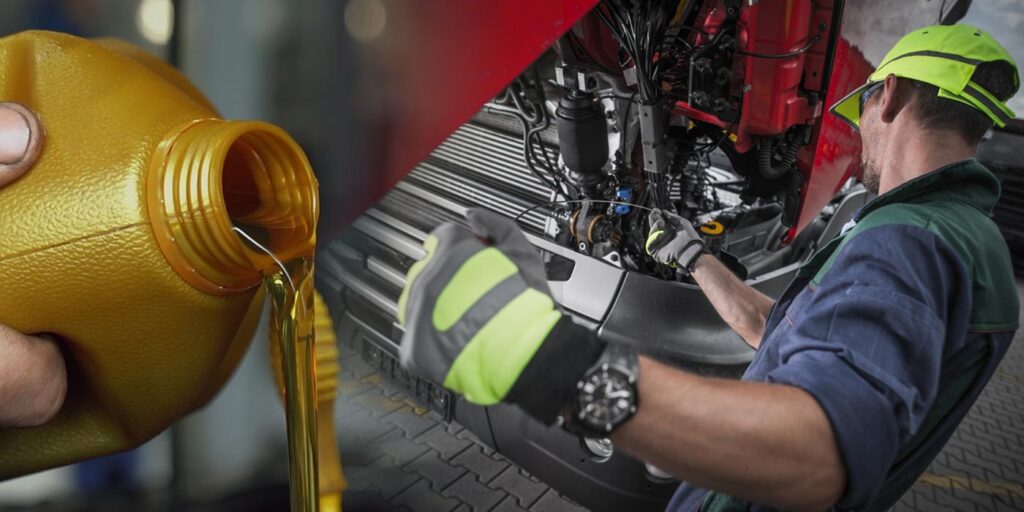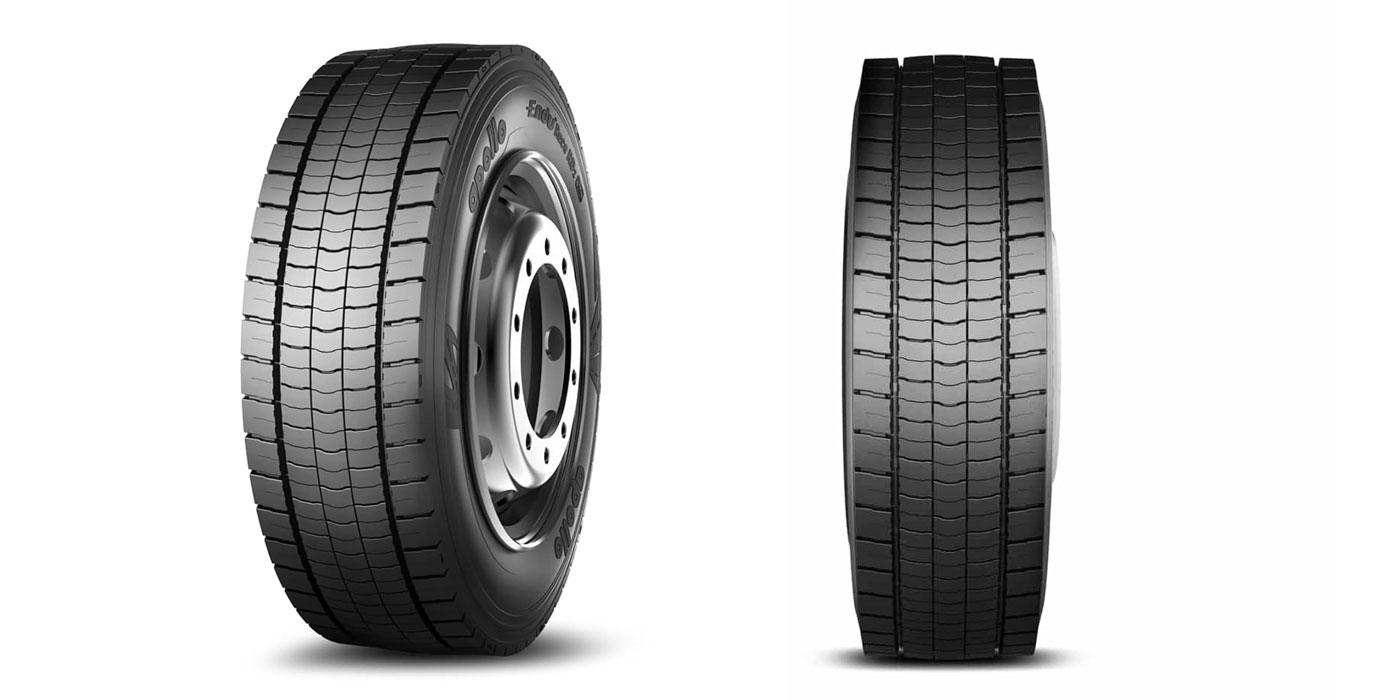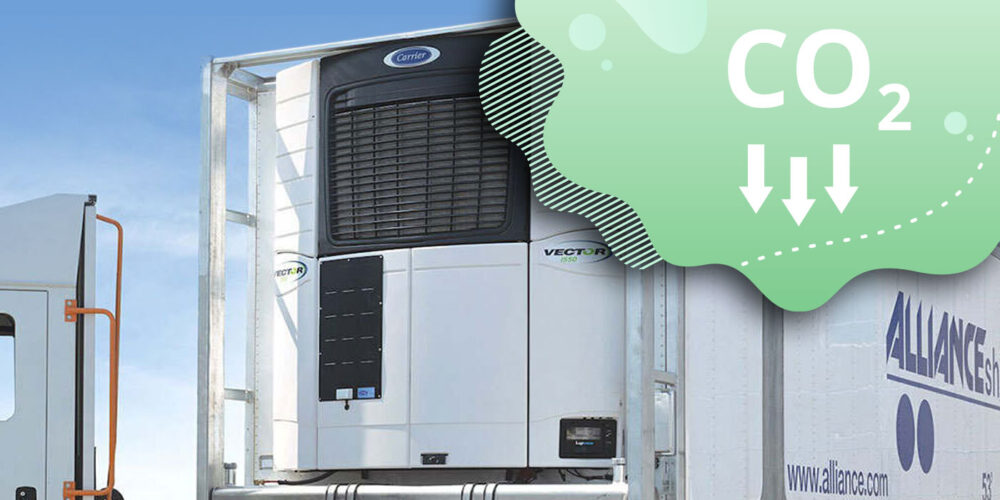On-highway fleet maintenance is arguably more complicated than it’s ever been. Fleet managers, maintenance managers, and techs alike face the difficult challenge of minimizing their total cost of ownership (TCO) amidst a radically evolving business landscape. The challenge of keeping current with and understanding how emerging trends affect each other is perhaps the most complicated, as fleets often weight the selection of the right combination of solutions to achieve total operational efficiency. One effective strategy—and one that has largely gone overlooked in the trucking world—is the use of lower-viscosity engine oil, including formulations certified to the API FA-4 performance category.
Fleetwide use of low-viscosity formulations can help significantly improve fuel economy and lower total operational costs for fleets in any industry. What’s more, using these types of fluids has strong incentives for every level of the organization, from your day-to-day maintenance decisions as well as your long-term maintenance strategy. Let’s explore the benefits and see how low-viscosity lubricants can lower your TCO.
Operational and maintenance benefits
At the most fundamental level, lower-viscosity engine oils eliminate friction between moving parts in the engine. This means they enable those parts to move more efficiently. An engine using a lower-viscosity oil will therefore expend less energy and will burn less fuel to deliver the same power and performance.
The results can be dramatic. It has been shown that:
- Class 8 over-the-road fleets can realistically expect fuel savings in the range of 0.5%-1.5% by switching from 15W-40 to 5W/10W-30 engine oil.
- Switching to the fuel-efficient FA-4 variant can be expected to add a further 0.4%-0.7% of increased fuel efficiency.
Used fleet wide, these benefits can add up to major savings for your operations. It’s estimated that fuel costs represent roughly 22% of a fleet’s average cost per mile, making it a prime target for reduced spending. This is particularly true as on-highway diesel prices have climbed dramatically in 2022.
The benefits extend beyond simple fuel savings. Because lower-viscosity lubricants put less stress on moving engine parts, overall durability and longevity of the engine can be improved, leading to fewer maintenance fixes throughout the vehicle’s useful life. Additionally, API FA-4 lubricants are suited for extended drain intervals—meaning you can keep your trucks on the road for longer without breaking for oil changes. All of this adds up, and it’s well worth any maintenance manager’s evaluation to make the switch.

Organizational and strategic benefits
Beyond your maintenance bays, lower-viscosity formulations have more to contribute. They can contribute to slashing your fleet’s cumulative emissions via fuel efficiency gains.
Any given vehicle in your fleet may see more than a million miles on the road before it is taken out of service. If that vehicle has been serviced with FA-4 formulations throughout its lifetime, the result could be a 10- to 12-ton reduction in carbon dioxide compared with the same vehicle using conventional API CK-4 formulations. Projected across an entire fleet, those numbers can add up to significantly lower environmental impact from your organization.
This matters in today’s economy, and matter to today’s fleet executives. It is likely that your customers—no matter who they are—are increasingly concerned with their own sustainability and that of whom they do business with. Studies show that consumers today make purchase decisions based on sustainability.
Meanwhile, organizations of all types are increasingly concerned with reducing their Scope 1, 2 and 3 emissions. Scope 1 are direct greenhouse gas (GHG) emissions from sources under an organization’s control. Scope 2 are indirect GHG emissions associated with the purchase of electricity, steam, heat, or cooling. Scope 3 are resulting emissions from activities not controlled by the organization (i.e., its supply chains) and often represent the majority of a company’s total GHG emissions—and they’re a big part of why many organizations are increasingly concerned with the sustainability practices of their vendors and business partners.
Making the relatively simple choice of switching to fleetwide use of lower-viscosity lubricant formulations can have a big impact on your sustainability mission. For fleet executives in charge of making these kinds of decisions, it’s worth examination.
Top-Tier fluids for every application
For fleets looking to go beyond optimizing their engine oils, it can be worth investigating what kind of upgrades are available in every application that requires some form of fluid. Driveline fluids, engine oils, fuels, and greases play essential individual roles in a vehicle’s performance and efficiency.
For example, fuel quality plays an important role in keeping diesel particulate filters (DPFs) in proper working order. Any fleet maintenance manager knows that DPFs are very costly maintenance items—when they malfunction on a truck, that truck is essentially immobile until the proper maintenance has been performed. And it’s not just the maintenance costs that can be a drag on operational profitability but the downtime that comes with them. The right fuel or fuel additive technology can help maintain DPF performance for the life of the vehicle.
Taken collectively, an optimal mix of high-performance fluid products, when applied systematically across your businesses, can create many advantageous effects that can positively impact the bottom lines, including decreased life cycle expenses, reduced maintenance costs, and better fuel economy. By partnering with a lubricant supplier who can pinpoint the fleets unique lubricant needs, fleets can more easily develop tailored solutions to reduce their TCO and achieve greater business efficiency immediately.
This story was contributed by Gregory Garwood and Greg Matheson.
Gregory Garwood is a business development manager for The Lubrizol Corporation. Since joining Lubrizol in 2010, Greg has worked as a global product manager for Fuel Additives, commercial manager for Oilfield Chemicals, breakthrough innovation manager for Lubrizol Additives, and commercial manager for Automotive Gear Oils.
Greg Matheson is a commercial lubricants product manager for The Lubrizol Corporation. Since joining Lubrizol in 2015, Greg has worked as an OEM account manager, managing Lubrizol’s business with the heavy-duty truck and engine builder OEMs in North America. In his current role, Greg is responsible for a wide variety of API CK-4 and FA-4 additive products in North America and globally for Lubrizol.














